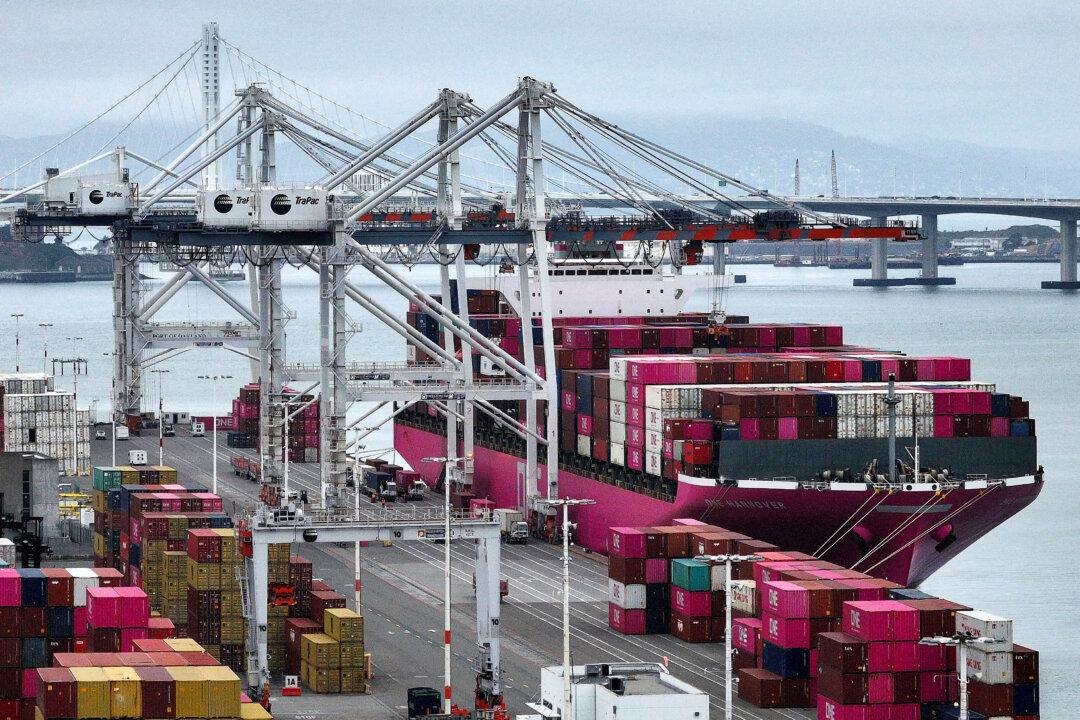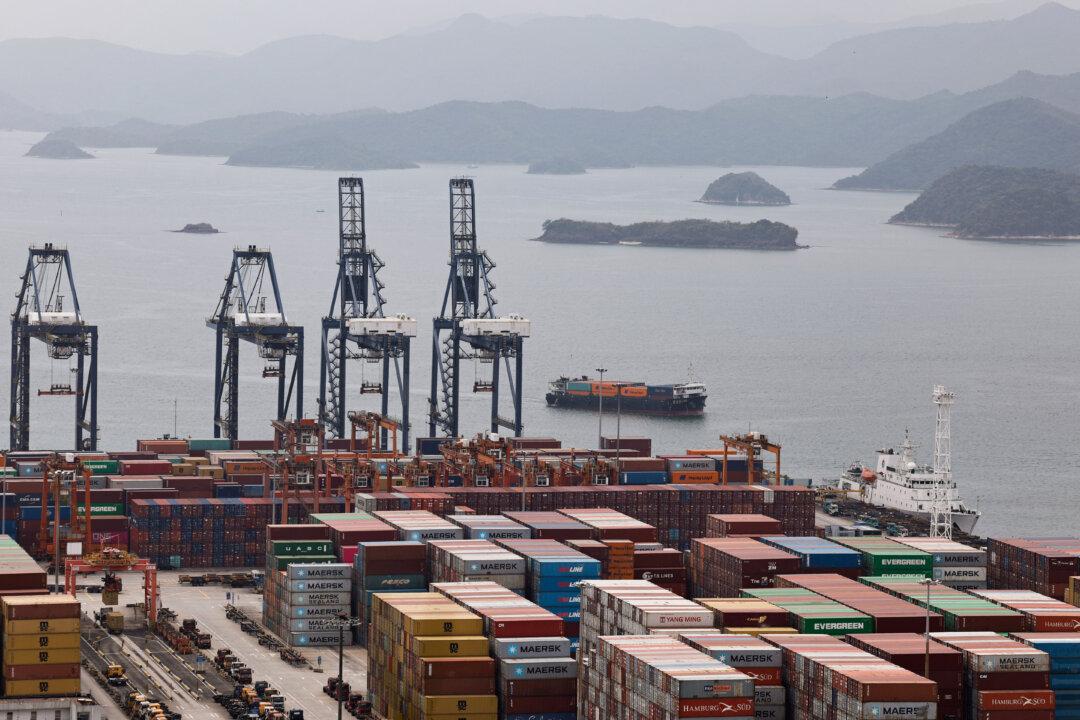U.S. tariff revenues reached an all-time high in May as President Donald Trump’s trade policies started to fill government coffers.
Shortly after his April 2 “Liberation Day” announcement, the administration imposed 10 percent tariffs on nearly every country in the world.
Fiscal year-to-date—the federal government’s fiscal year runs from October 1 to September 30—tariff revenues total $93.85 billion.
Customs and Border Protection (CBP) says that it has been implementing and enforcing the president’s tariffs “using all our enforcement and revenue collection authorities.”
Last month, the CBP conducted 33 audits, leading to the collection of $117 million in duties and fees owed to the U.S. government. Officials found that imported goods had been “improperly declared.”
Despite the sizable increase in tariff revenues, it still accounts for a relatively small portion of overall government receipts.
Despite the president’s estimates, tariffs are only producing less than $1 billion per day for the U.S. government.

During a meeting with Salvadoran President Nayib Bukele last month, Trump stated that the United States was “taking in billions and billions of dollars” from his trade agenda.
“We were losing 2 billion a day. ... Now we’re making $3 billion a day,” he said.
The president has repeatedly threatened new or higher tariffs since the “Make America Wealthy Again” event on April 2.
Looking at Revenue Projections
Senior administration officials have presented substantial revenue projections based on the president’s tariff plans.“The message is that tariffs are tax cuts, tariffs are jobs, tariffs are national security. Tariffs are great for America. They will make America great again,” Navarro said.

Economists have presented more conservative estimates.
Officials, including Treasury Secretary Scott Bessent, have suggested that tariffs could be a major source of income for the federal government. Speaking to reporters at a White House press briefing, Bessent stated that tariff revenue could “give income tax relief.”
This would, however, be only temporary.
According to the senior Cabinet secretary, reliance on tariff revenue would diminish as more companies onshore and reshore manufacturing, bolstering domestic income.
The administration’s tariffs have now faced legal hurdles, which might throw a wrench in fiscal projections.
A three-judge panel at the New York-based U.S. Court of International Trade blocked the president’s global tariffs. A second court also handed down an order blocking Trump’s use of emergency powers to implement tariffs.
An appeals court ruled that the president’s tariffs could stay in place.
Scores of White House officials have shrugged off the legal roadblocks.

“All these things are on the table,” Greer said. “The reality is, we have this enormous trade deficit. It got worse over the Biden years, and if we don’t fix the global trading system, it’s just going to get even worse going forward. We have to fix it.”







